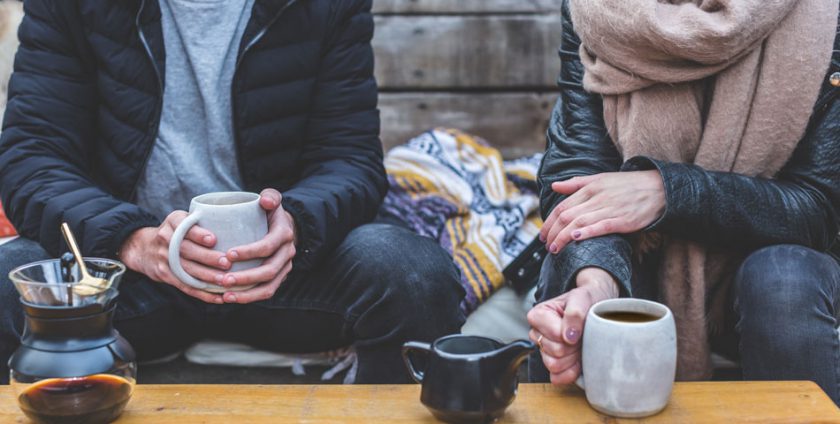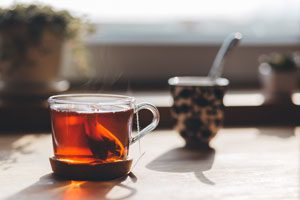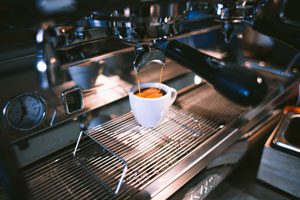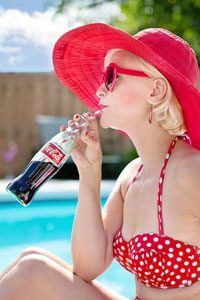Caffeinated drinks: health risk or reward?

400-500mg caffeine (200mg for pregnant women) per days
In any given day, your caffeine intake should not exceed the above. Too much caffeine can affect your circulatory and nervous system – that “jittery” feeling is characterised by higher blood pressure and anxiety.
In terms of digestion, too much caffeine increases acid production in the stomach as well as acting as a diuretic – increasing urination and even causing diarrhoea. Resultant dehydration disrupts metabolic processes in the body – even if you’re not a scientist, you can understand that this ain’t good.
The most prevalent caffeinated drinks of 2017 include coffee and tea, sugar-sweetened beverages and the relative new kid on the block: energy drinks. There is a variation in caffeine intake between sources although, more importantly, there is variation in the impact on health. So, starting healthy and finishing in potential health risks, here is THE CAFFEINE COUNTDOWN:
4# Tea

Cup of English breakfast tea ≈ 20-40mg caffeine (variable)
Caffeine content is extremely variable due to a number of factors, from the type of tea to how long it is brewed. Generally speaking, however, tea is a relatively low-caffeine and even has healthbenefits – containing anti-oxidants, for example.
Obviously you should keep track of how much caffeine you take from tea in a given day. Relatively speaking, however, it is harmless and varieties such as green tea have numerous health and digestive benefits. So go ahead and have that cupper – by Jove, it’s downright British to do so!
3# Coffee

Espresso ≈ 60-75mg caffeine (variable)
As a 31 year old, I now unequivocally shell-out for variable standards of barista-made coffee. They now cost the same as what I used to pay for a pint of lager, back when life was so much simpler. Having said this, coffee is obviously a vice of mine: versatile; available everywhere; bloody delicious.
Coffee also packs a punch, however. Unmade tea may contain more caffeine than unmade coffee, but an espresso may contain more caffeine than abuilder’s mug of tea. Moreover, high-street espresso shots can have a wide range of caffeine-levels. Careful ordering any double-shot, large or venti as this may take your caffeine intake into the multiple hundreds in one fell swoop.

2# Sugar-sweetened beverages (SSBs)
Can of cola ≈ 30-40mg caffeine
Not a huge amount of caffeine, although SSBs have been bumped up to 2# due to the modern-day “bad guy” additive: sugar. Associations with poor dental health, diabetes, obesity, cancer and addiction – some regard sugar as the “new tobacco”.
The whole health issue of sugar is broader, although SSBs are a health issue that stand alone – and they are a particular threat to young people’s health. Sugar-free opt
ions suggest there might be a trace of corporate responsibility found between marketing campaigns, but low/no sugar options are certainly not without health risks themselves.
1# Energy drinks

Depending on size of can ≈ 80-160mg caffeine
Now a global commercial influence after post millennial boom: Formula 1 team, dropping men from space for marketing purposes…there’s no question energy drink companies are extremely rich, and people love spending money on their product.
Young people are again the most suggestible to consumption, which is – again – a health issue in itself. They are often used in partnership with sugar (see above) or a host of synthetic substances, or even alcohol.
Coupled with the highest levels of caffeine available, energy drinks have associations with all the health issues listed above put together, and more. I get the feeling in 20 years I might be saying to an old friend: “remember the twenty-tens, when everybody still drank energy drinks and smoked vapes?”
So what do we do?
I’ll be honest: despite all the above, I adore caffeinated drinks – not a day goes by where I don’t have a cup of coffee, mug of tea, a soft drink or, dare I say it, an alcoholic sugar-sweetened beverage (these ones occur frequently). Importantly, however…. I keep track of what I drink. I also try to avoid SSBs and energy drinks in general, and I drink plenty of water.
There is no real upper limit on water consumption, and only healthy associations with being hydrated – hence recommendations of 6-8 cups/classes of fluid per day. There are also plenty of healthy (i.e. low sugar) and caffeine-free options to choose from. Remember to reward yourself, but always avoid putting your health at risk!
Do you like an energy drink before your workout? Do you think sugar is pure evil? Whatever your opinion, let us know your thoughts on caffeinated drinks below!
0 Comment
Leave a Reply